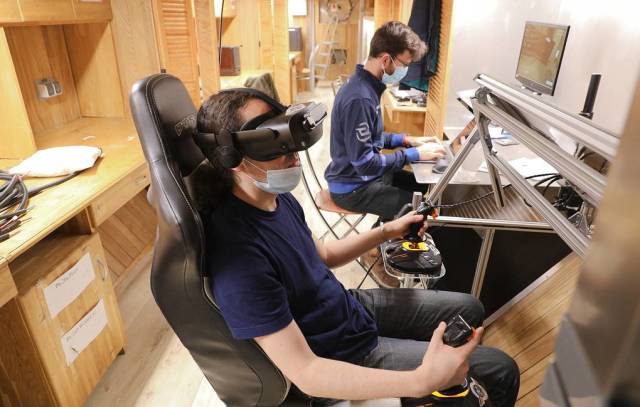According to the chief project manager Mark Belakovsky, many countries have applied to Russia to participate in the one-year experiment, a number of contracts have already been signed
MOSCOW, November 9. /tass/. The SIRIUS international annual experiment simulating a flight into deep space is scheduled to begin at the Institute of Biomedical Problems of the Russian Academy of Sciences in Moscow in the first quarter of 2023. This was reported to TASS by SIRIUS project chief Manager, Head of the Department of IMBP RAS Mark Belakovsky.
"Today there is a verbal agreement to conduct three more year-long experiments. I think we can start such an experiment in the first quarter of 2023," he said.
According to Belakovsky, many countries have applied to the Russian Institute to participate in the one-year experiment, a number of contracts have already been signed.
On November 4, an eight-month isolation experiment SIRIUS-2021, which simulates an expedition to the Moon, was launched at the Institute of Biomedical Problems of the Russian Academy of Sciences in Moscow. The crew, which included three Russians, two representatives of the United States and one representative of the UAE, will have to "get" to the Moon in 240 days, "fly around" it to find a landing site, "land" on the surface and return back. All this time, the crew will be in an autonomous ground complex and communicate only with the experiment control center via audio communication. Communication with relatives and relatives will be available via e-mail.
The SIRIUS International project (Scientific International Research In Unique Terrestrial Station, Scientific international research in a unique terrestrial complex) is carried out jointly by the Institute of Biomedical Problems of the Russian Academy of Sciences and the NASA Human Research Program with the participation of space agencies of Russia, Germany and Canada, as well as specialists from Russia, the USA, Germany, France, Italy and other countries. The SIRIUS project provides for a whole series of isolation experiments. The first one took place in November 2017, when the crew spent 17 days in isolation. The isolation lasted for four months in 2018-2019 . It is planned to conduct three annual experiments until 2028.

